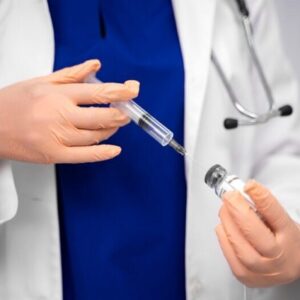
To address an underlying cause of your erectile dysfunction, you might collaborate with a medical professional (ED). Selecting a treatment for ED is a personal choice. However, discussing the best course of action for your couple as a whole with your spouse may also be beneficial. Erectile dysfunction (ED) is a prevalent condition impacting males across various age groups. While ED can have a range of potential causes, the good news is that there are effective treatments available. In this comprehensive analysis, you will read what is the best treatment for erectile dysfunction.
Facts of Erectile Dysfunction:
Numerous medical conditions as well as psychological issues can lead to erectile dysfunction, including:
Physical Health: Decreased blood flow to the penis can lead to ED. Conditions including diabetes, heart disease, obesity, hypertension, and others can cause this.
Psychological Factors: Depression, anxiety, stress, and relationship issues can all contribute to or exacerbate ED.
Lifestyle: Smoking, binge drinking, and substance misuse can all affect penile function.
Medication: ED is a side effect of some medications.
Nervous System Disorders: These conditions may prevent signals from the brain from getting to the penis.
Consult With the Doctor:
A doctor can diagnose erectile dysfunction and suggest a course of treatment for many patients based just on a physical examination and answers to inquiries about their medical history. You may require additional testing or a meeting with a specialist if you have long-term medical conditions or if your doctor believes there may be an underlying condition at play.
Examinations for underlying diseases could consist of the following:
Physical examination: This may entail examining your testicles and penis closely as well as feeling sensations in your nerves.
Blood examinations: Your blood may be requested by a lab for analysis to check for signs of diabetes, low testosterone, heart disease, and other conditions.
Urine tests (urinalysis): It is used to check for indications of diabetes and other underlying medical issues, just like blood tests do.
Ultrasound: Usually, a professional does this examination in an office setting. The process entails placing a transducer, which resembles a wand, across the blood veins supplying the penis. To help your doctor determine whether you have blood flow issues, it produces a video image.
This test is occasionally combined with an injection of medication into the penis to boost blood flow and cause erections.
Psychological assessment: To screen for depression and other potential psychological reasons for erectile dysfunction, your doctor may ask you questions.
What Is the Best Treatment for Erectile Dysfunction?
Some of the best treatments for erectile dysfunction are discussed below.
Alprostadil self-injection: Using this technique, you inject alprostadil into the side or base of your penis using a tiny needle. Sometimes, drugs that are typically prescribed for different ailments are used alone or in combination with penile injections. Alprostadil and phentolamine are two examples.
This treatment is not long-lasting and will be effective for more than an hour of each injection’s dosage. Since the needle is so tiny, there is typically very little pain at the injection site. Mild injection site bleeding, priapism, or an extended erection are possible side effects. Fibrous tissue growth at the injection site is an uncommon occurrence.
Alprostadil urethral suppository: Alprostadil (Muse) intraurethral therapy is inserting a tiny alprostadil suppository into the penile urethra of your penis. You place the suppository into your penile urethra using a specialized applicator.
When successful, the erection typically lasts between 30 and 60 minutes and begins within 10 minutes. A burning sensation in the penis, slight urethral bleeding, and the development of fibrous tissue inside the penis are possible adverse effects.
Testosterone replacement: Low levels of the hormone testosterone may exacerbate erectile dysfunction in some persons. In this instance, testosterone replacement treatment may be suggested as a first line of treatment or in conjunction with other forms of treatment.
Conclusion:
Many men worry about erectile dysfunction, yet it is a problem that can be effectively managed and treated. Depending on the underlying causes and personal preferences, different people respond differently to different treatments for ED. Valuable choices include changes in lifestyle, oral drugs, vacuum erection devices, penile injections, penile implants, and psychotherapy. Speaking with a healthcare professional is crucial to decide on the best course of action and to discuss any queries or worries. You can discuss and get the treatment confidentially from the best doctors in Dynamic Clinic Islamabad. They will examine your problem and will suggest you the best solution for you.












